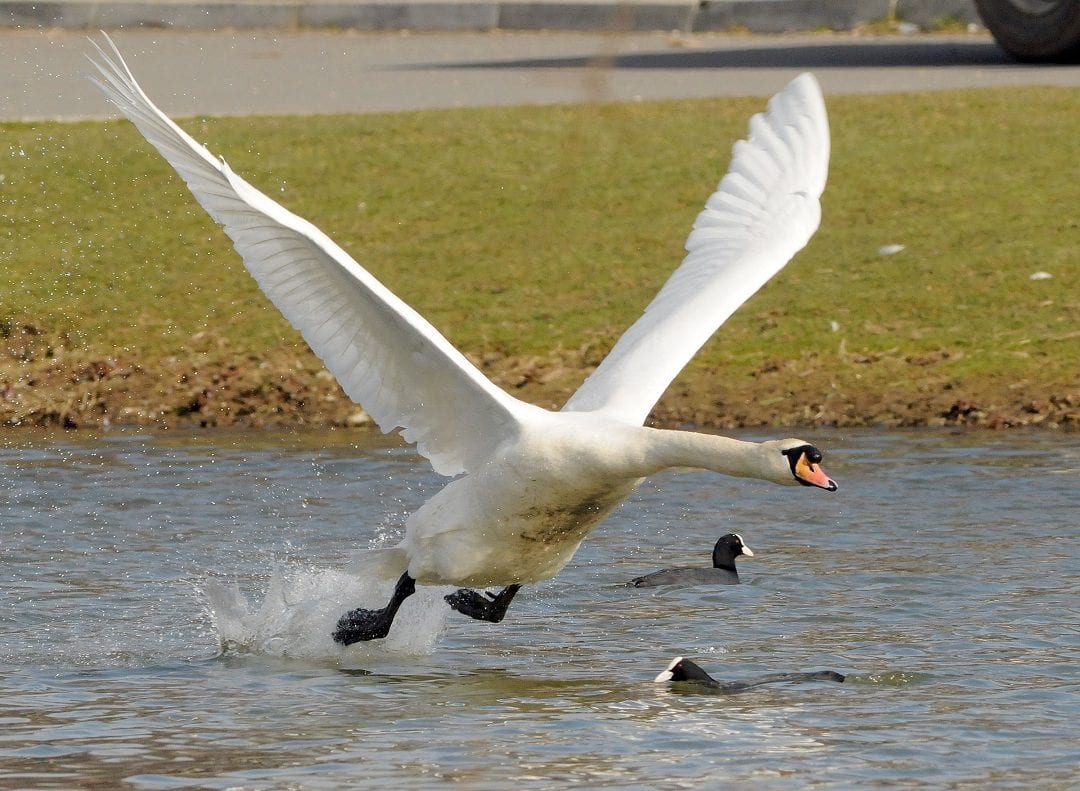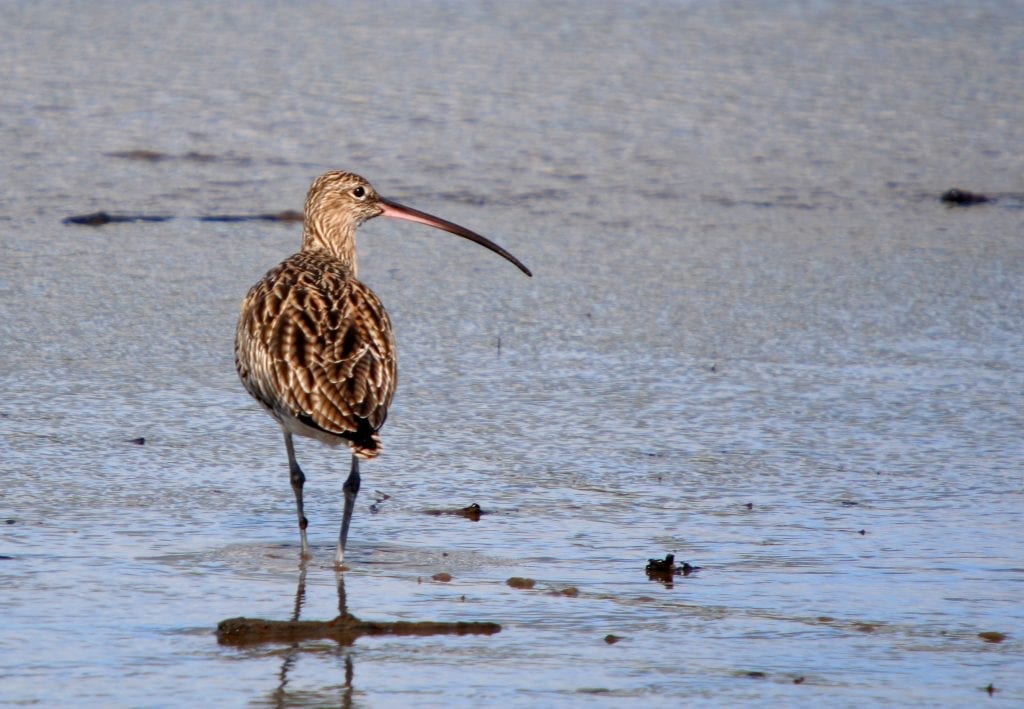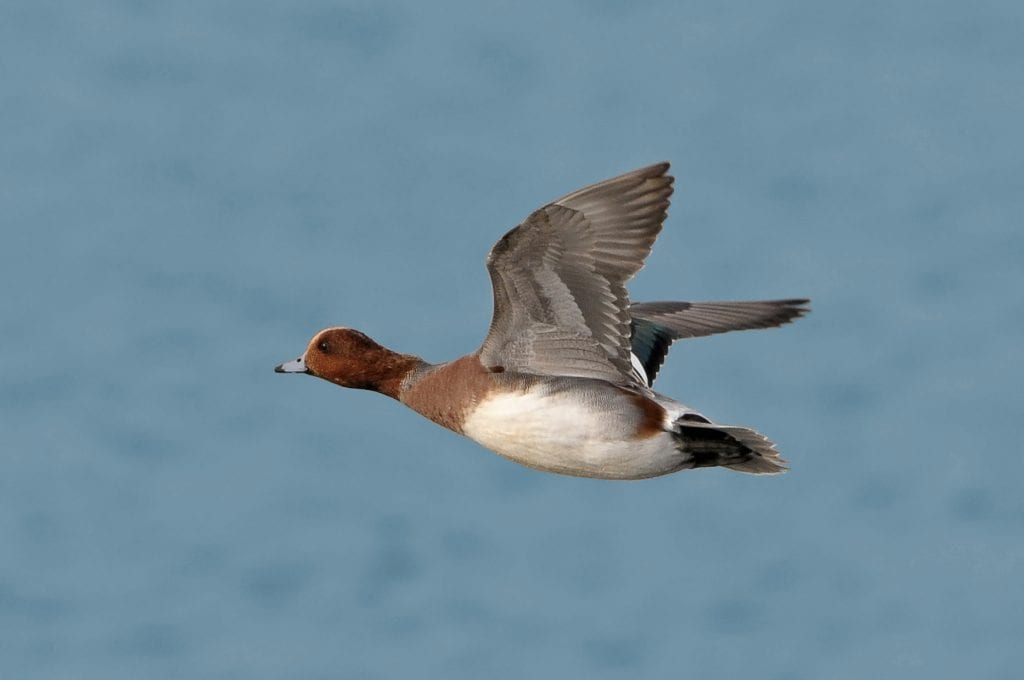BirdWatch Ireland are asking members of the public to report any dead or sick waterbird species they might find, so the birds can be tested for avian flu.
(This Article has been updated on 16/12/2020 in light of Update No. 16 of 2020 from the Department of Agriculture)
Avian Influenza has been confirmed in ten wild birds in Ireland so far this winter and a number of others are currently being tested. In addition, cases of avian influenza H5N8 have been identified in a small turkey flock in Co. Wicklow and the necessary precautions and restrictions have been put in place. Although the risk to both human health, or to garden birds, is very low, BirdWatch Ireland is asking the public to keep an eye out for any waterbird species that may be acting strangely or any dead waterbirds, and to report them to the Department of Agriculture via the Avian Flu hotline (call 076 106 4403) so that they can be tested appropriately.
There are numerous strains and subtypes of avian flu that each vary in severity. The strain that has recently been detected in some wild birds in Ireland is Highly Pathogenic Avian Influenza (HPAI) H5N8, which spreads easily between birds and causes illness, with a high death rate. This strain had been detected in a number of European countries before arriving into Ireland last month. BirdWatch Ireland are part of an early warning system with regard to surveillance for signs of disease in wild birds, together with colleagues in the National Parks and Wildlife Service (NPWS), the Department of Agriculture, Food and the Marine and the National Association of Regional Game Councils (NAGC).
A Curlew in Mayo was one of the birds to test positive for avian flu in Ireland this year.
The confirmed cases of avian flu in the Republic of Ireland so far this winter were in a Curlew (Mayo), three Peregrine Falcons (Limerick, Cork, Mayo), a Whooper Swan (Wicklow), a Barnacle Goose (Cork) and four Mute Swans ( 2 in Monaghan, 1 in Kildare, 1 in Wexford). A Mute Swan in Derry was also amongst five confirmed cases in Northern Ireland last month. Avian flu, in particular HPAI H5N8, is highly contagious for birds and migratory waterbirds are the species most likely to become infected – often ducks, geese, swans, gulls and waders. Many of these species migrate here for the winter, and congregate in large numbers, increasing the chances of the virus spreading. Certain birds of prey that might feed on waterbirds, particularly sick waterbirds that are vulnerable to predation, can also become infected and this includes Peregrines and White-tailed Eagles.
Members of the public are advised not to handle sick or dead wild birds, but to report them to your local Regional Veterinary Office (click here for contact details) or contact the DAFM avian flu hotline on 1850 200456. It is important that any potential cases of avian flu are investigated and documented appropriately in order to monitor the spread of the virus.
Other waterbird species such as Wigeon are vulnerable to avian flu and any dead or sick birds should be reported immeditately.
To date there have been no cases in poultry flocks in Ireland, but poultry owners should familiarise themselves with Department of Agriculture guidance on biosecurity and new regulations introduced as a precautionary measure. It should be stressed that there is no food safety risk for consumers and that properly cooked poultry and poultry products are safe to eat.




